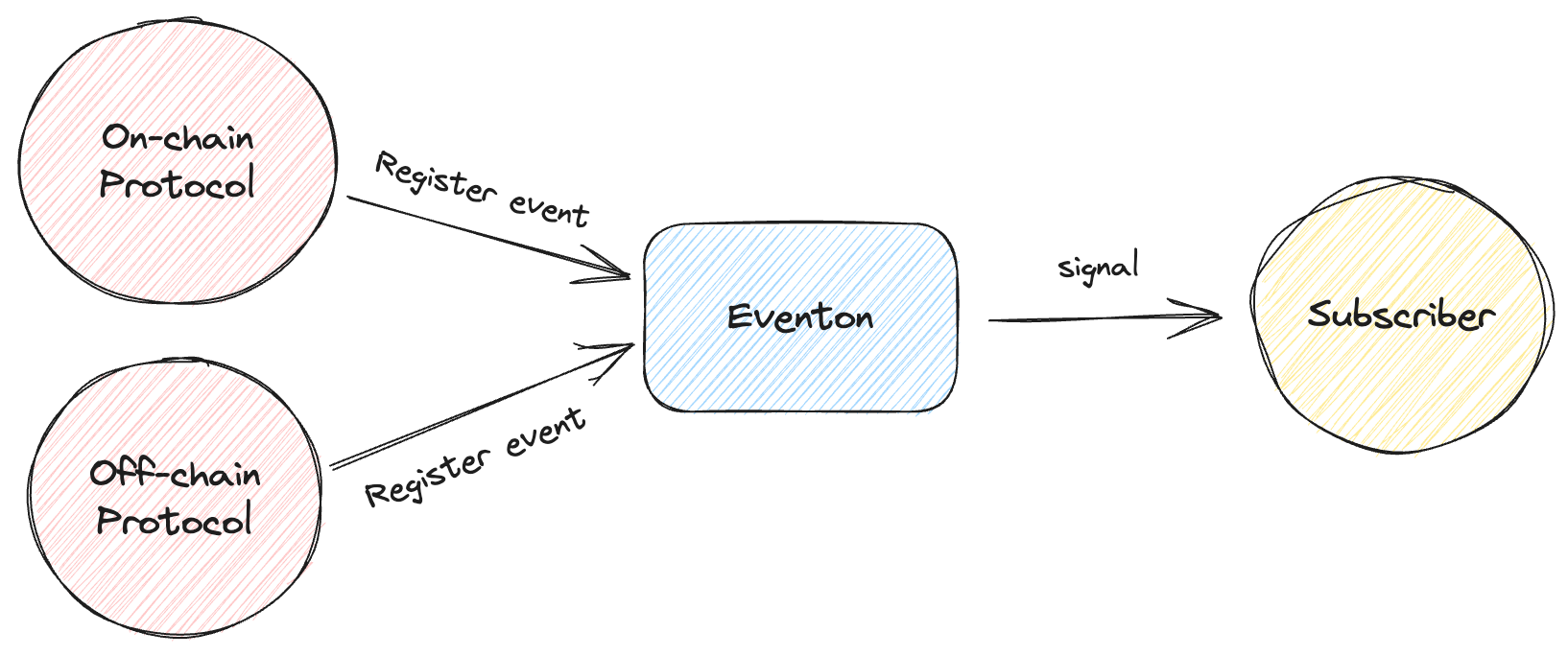Protocol
Introduction
The Protocol plays a pivotal role within our system, serving as the main source of signals.

Drawing from the above explanation, we can categorize it into two main types:
On-chain Protocol: These protocols predominantly represent a majority of DeFi protocols. They offer services like lending, trading, insurance, and more, all of which are executed on-chain. Hence, we term them as On-chain Protocols.
Off-chain Protocol: These protocols cater to data from off-chain sources, such as oracles. The computations and interactions for these data points occur off-chain, leading us to define them as Off-chain Protocols.
Prepare: Just Alertable
To send signal, you need to prepare a contract with our template interface Alertable.
trait Alertable with Ownable {
owner: Address;
protocolName: String; // Protocol name
eventonAddress: Address; // Eventon address
...
receive(msg : ProtocolRegister) { ... }
}
To register a protocol, you need to implement the receive function with message ProtocolRegister.
receive(msg : ProtocolRegister) {
self.requireOwner();
send(SendParameters{
to: self.eventonAddress,
value: 0,
bounce: false,
mode: SendRemainingValue,
body: ProtocolRegister{
sourceAddress: myAddress(), // Protocol's address
template: msg.template, // Callback contract for subscribers
maxUserStakeAmount: msg.maxUserStakeAmount, // Maximum amount of stake that a user can stake for the protocol
subscribeFeePerTick: msg.subscribeFeePerTick // Amount of fee that a subscriber has to pay for each tick
}.toCell()
});
}
Functionality
Registering an Event
To register an event for signal provision, the following details are required:
template: The default contract init code, serving as a template for subscribers to receive signals.maxUserStakeAmount: The maximum amount a subscriber can stake.subscribeFeePerTick: The fee payable by subscribers for each tick.
Sending Signals
For a registered event, signals can be dispatched. The necessary details include:
eventId: The unique ID associated with the event.payload: The content of the signal being sent.
Collecting Subscription Fee
Withdrawals can be made from the profit pool. The required information is:
amount: The sum of accumulated subscription earnings to be withdrawn.receiver: The intended recipient of the earnings.